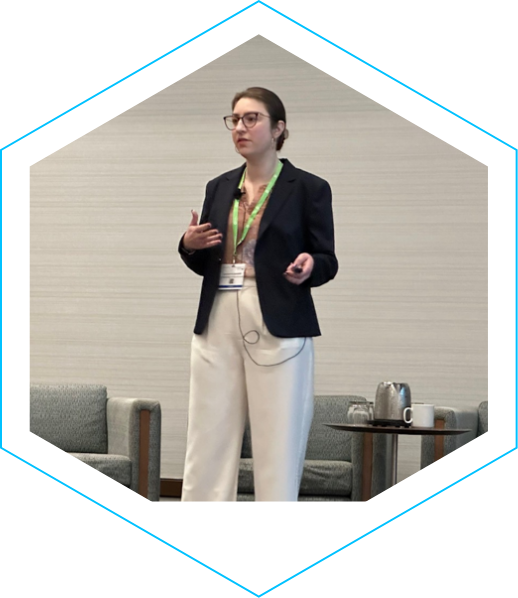
Chemical Engineering: What Scientists and other Engineers need to know
Event overview

R&D scientists are often at a disadvantage when working in process research and development because of their lack of knowledge about the basic principles of chemical engineering, and the impact of decisions regarding process yield and selectivity on up- and downstream operations. Other branches of engineering face a similar disadvantage when considering the whole process.
This course has been developed, and is presented, by chemical engineers and chemists who specialise in facilitating knowledge transfer and understanding between different scientific and engineering disciplines working at the R&D-manufacturing interface. As a result, it does not dwell on the derivation of mathematical formulae or equations used in chemical engineering design, but instead focuses on what other disciplines need to know about the information and data that chemical engineers require for design, scale-up and process troubleshooting.
Chemical engineering without mathematics is impossible, but this course presents only relevant mathematics at a level that should not trouble anyone with a numerate scientific degree. Other disciplines do not need to know how to design plants or equipment and this course does not attempt to teach this. The course focuses on understanding chemical engineering principles to promote clear communication between disciplines, facilitating information and knowledge transfer.
Course Outline
Introduction to chemical engineering
- What do some chemical engineers do?
- Dimensionless groups
- Process representations and their uses
- Conservation of mass and material balances
- Conservation of energy and energy balances
Flow of fluids
- Basics of fluid behaviour
- Fluid properties
- Flow measurement
- Reynolds number
- Pressure drop in pipes
- Types of pump and pump selection
- Applications of mixing
- Types of agitators
- Mixing regimes and their effects on process
- Solid-liquid and gas-liquid mixing
Heat transfer
- Fundamentals of conduction and convection, heat transfer coefficients
- Types of heat transfer equipment
- Heat transfer in batch vessels
- Evaporation
- Joule-Thomson effect
- Humidity and drying, dryer design
Mass transfer and separation processes
- Introduction to mass transfer
- Phase equilibria
- Mass transfer coefficients
- Introduction to column contactors
- Gas absorption
- Distillation
- Solvent extraction processes and equipment
Reaction engineering
- Reaction engineering principles
- Simple approaches to reactor design and selection
Introduction to process safety
- Principles of intrinsic and inherent safety
- Electrostatics
- Dust explosions
- Pressure relief
- Instrumented protection.
Course Objectives
Chemists, biologists and engineers regularly interact and collaborate in process R&D projects. For effective team working they should each understand the needs and objectives of the other disciplines.
This course gives scientists and other engineering disciplines an introduction to the main aspects of chemical engineering science that will help them realise the importance of the subject. It introduces and describes core principles of chemical engineering and how process technologists can provide data and information to support the chemical engineers in their work. The course will help other process technologists appreciate the role of chemical engineers and assist in understanding their requirements.
The course will equip process technologists with a sufficient understanding of chemical engineering to foster better communication with chemical and process engineers. It will enable delegates to be aware of the impact of chemical engineering principles on successful scale-up and process problem solving. The principle aim is that delegates will be able to discuss chemical engineering issues affecting their processes and relate them to their own areas of expertise.
What's Included
The course fee includes:
- comprehensive course manual
- coffee/tea refreshments breaks throughout each day
- buffet lunch each day
- course certificate
Other Information
General Information
Each course includes:
- Refreshments & lunch daily
- Dinner on the first evening*
- The comprehensive Course Manual
- Course Certificate
Please refer to the course brochure for detailed timings.
*Not every course includes dinner please refer to the course brochures for detailed information on what’s included.
Course Certificate
At the end of each course participants receive a Certificate of Attendance – signed by your tutor.
Accommodation
Depending on venues we either reserve a limited number of bedrooms at a special rate for you or we will provide a list of recommended hotels close by to the course venue. More information on rates and booking forms will be provided upon booking. All rooms will need to booked directly with the hotel.
Discounts
1st delegate = full price
2nd delegate = 5% off
3rd delegate = 10% off
4 or more delegates = 15% off
For more information on discounts do give us a call on 44 1435 873 062
Chemical Engineering: What Scientists and other Engineers need to know
Fee info
Venue info
41004 Sevilla
Spain
It was good. Never visited a Scientific Update conference, but will get it on my priority list. Very good – like the set-up, flow and topics. Very interested in process development.
Organic Process Research & Development Conference Delegate 2023
Thank you for the excellent conference. I enjoyed the scientific content and the networking opportunities. I will definitely recommend this conference to my colleagues.
The Formulation and Drug Delivery Congress Delegate
Become a speaker at one of our events
Share your expertise with a global audience of industry professionals. Scientific Update is continually seeking thought leaders and industry innovators to speak at our renowned conferences and training courses.








